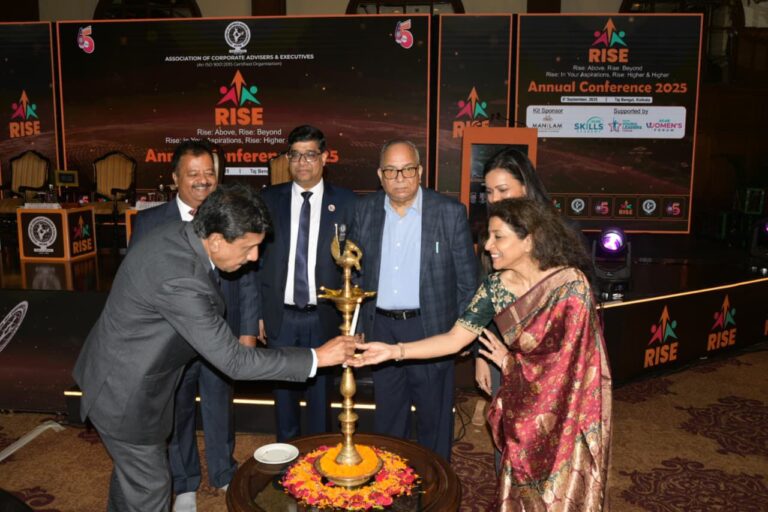By Stephanie Yeo for The Straits Times
Copyright tnp

Ms Chris Yam was 37 when a client invited her to a breakfast meeting for a networking group in 2006.
“There were over 300 people in the room. The lights were so bright and it was buzzing with people talking. I was frozen on the spot,” says the former programmer who joined her father’s printing business, Wah Printers, when she was 24.
She is now director of ColourXpress Media, which offers express printing, creative services and book publishing.
“When everyone took turns to introduce themselves, I fumbled and just gave my name and company name.”
The 56-year-old turned her networking struggles into a book titled The Introvert’s Light To Networking Success: Illuminate Your Path To Strong And Authentic Connections, which her company published in May 2025. It costs $29 from Amazon’s Singapore store.
The 147-page paperback has sold more than 300 copies and a Chinese translation is in the works.
Ms Yam says her book arms introverts with practical steps to prepare for networking events and ways to shine and follow up successfully. For instance, how to look for natural openings in groups of people by reading their body language and rehearsing interesting personal stories to share.
Like Ms Yam, career coach Lim Yue-Wen drew from the frustrations of his 35-year career across various industries to create five e-books under the Career Introvert’s Guide series. Over 40 to 60 pages, the titles, self-published since 2024, cover topics such as networking, reinvention and thriving in an extroverted workplace.
“Much of today’s career advice assumes you have to act more extroverted to succeed. That can be exhausting and discouraging for introverts,” says the 63-year-old, who runs LifeWork Consulting, a career coaching and performance development company.
“We need resources that validate our quieter strengths – deep thinking, listening, empathy – and show practical strategies to thrive in environments that often reward loudness.”
So far, he has sold several hundred downloads of his books, which are available from careerbliss.info at $8.99 a download.
It has been more than a decade since American lawyer-turned-writer Susan Cain’s 2012 best-selling book, Quiet: The Power Of Introverts In A World That Can’t Stop Talking, gave voice to workers who feel lost in workplaces that seem to value presence over performance.
Yet recent books like Ms Yam’s and Mr Lim’s and the rise of coaches specialising in introverts show there are still many people looking for advice to get ahead in their careers.
Ms Jenny Toh, 52, a lawyer and coach who specialises in coaching introverted leaders under her River Life Coaching practice, says some of her clients are worried about their career prospects in an increasingly volatile economic climate.
“They’re asking me how to be more visible authentically, so that if their companies restructure, they stand a better chance of staying on because their contributions and value are recognised,” she says.
How many introverts are there?
Psychologists often use the “Big Five” framework to identify personality types, which includes traits such as openness, conscientiousness and agreeableness, along a continuum. So, a person who exhibits more sociability and assertiveness is classified as an extrovert, while someone at the other end is an introvert.
In reality, many people lie somewhere in between the two extremes, says Dr Vincent Oh, a senior lecturer in psychology from the School of Humanities and Behavioural Sciences at the Singapore University of Social Sciences (SUSS).
Ms June Fong, principal psychologist from Promises Healthcare, a private provider of mental health and addictions care, says it is hard to pinpoint the percentage of introverts, as there are no large-scale studies on the prevalence of such traits, especially in Asia.
Some may also shy away from identifying themselves as introverts on tests because extroversion traits are regarded more favourably in school and work settings, while introversion is associated with negative characteristics such as being socially withdrawn and lacking confidence.
In reality, introverts are not anti-social, says Ms Serena Low, 54, a trauma-informed introvert coach and midlife mentor.
The Singaporean-turned-Australian created two communities in 2020, Introverts Around The World and Quiet Women’s Circle, to help introverts find social connection during the Covid-19 pandemic. The groups, which now offer online events and offline activities in Melbourne, have about 3,300 and 1,100 members respectively, including a number of Singaporeans.
“It’s hard to find people who really understand them,” Ms Low says. “When they show up at our events, they feel different. It’s like a collective letting go: ‘These are my people, I’m safe here.'”
In Asian societies which prize modesty and harmony, such values may be mistaken for being quiet and introverted, but this is not necessarily accurate.
Ms Fong says: “One can be extroverted and conflict avoidant; another can be introverted but outspoken when the occasion calls for it. Introversion is not the absence of extroversion.”
It has often been said that Gen Z, aged 13 to 28 in 2025 and who spent much of their formative years online, especially during the pandemic, are more introverted, but the reality is more nuanced, says Dr Annabelle Chow, principal clinical psychologist at Annabelle Psychology, a private psychological practice.
As digital natives, they are comfortable connecting online and may appear reserved in person, “but it’s less about being more introverted and more about adaptability, the ability to shift between online and offline spaces”, she explains.
Overlooked for promotions, out-talked at meetings
But the real challenge, as The Straits Times’ interviews with 16 introverts revealed, is maintaining career visibility.
“I struggle during meetings, especially when answers are expected on the spot,” says Ms Betsy Tan, 48, a freelance communications consultant and writer who is also a fractional public relations director with Grow Public Relations. “I like to pause, process and reflect before speaking, but that pause gets misinterpreted as uncertainty or lack of expertise.”
She adds: “I remember a time when a senior leader asked me a question and I took a moment to think, only for them to see me as someone who did not know my work well.”
Ms Tan, who says she needs three hours to recuperate from a large-scale networking event, also struggles with selling her skills as an entrepreneur confidently, without feeling like she is bragging.
She works around this by using professional network LinkedIn to share ideas and resources that reflect her values. She also works at delivering her best on every assignment to leverage the power of word-of-mouth referrals.
Similarly, senior banker James Cheo says he often felt invisible during meetings in the early years of his career in finance, and wondered if he had to be louder, faster and more assertive.
He later realised that being a good listener was an asset rather than a liability.
“In one strategy meeting, I stayed quiet until the end, then offered a simple synthesis of what had been said and what was missing. A senior leader turned and said, ‘That’s exactly what we needed to hear.’ That moment showed me that sometimes the quietest contribution can be the most impactful,” says Mr Cheo, chief investment officer of South-east Asia and India at HSBC. He declined to reveal his age.
Ms Goh Shu Yi, 40, recounts how she lost a promotion to a more outgoing and assertive colleague despite delivering “strong results” when she worked as a consultant in the technology industry over a decade ago.
She realised then that her biggest challenge was “closing the gap between performance and perception”.
“If you stay in the shadows, your work also stays in the shadows,” says Ms Goh, who is now founder and principal consultant of training consultancy The Strengths Co.
She began holding lunch-and-learn sessions where she shared successful project strategies. She also turned her pitch decks into reusable assets and shared them with the rest of the company on Slack, an online team collaboration platform.
“Advocating for your work becomes much easier if you can help others at the same time,” she says.
This approach was so successful in increasing her visibility that her peers and management began to advocate for her, and she was promoted in the next promotion cycle.
Introverts in people-facing jobs can also face unconscious bias about what is expected of them.
Dr Hadi Wijaya, who describes himself as an “extreme introvert” in the early days of his three-decade-long career, recalls hitting his quota as a sales manager at a global consumer goods company, only to be told he lacked the ability to express his thoughts quickly. He was asked to attend a training programme on the topic.
Then more analytical than expressive, he says he harboured imposter syndrome about his oratory skills, worrying they were not good enough. His passion for education later spurred him to develop those skills.
The Singaporean, who is in his 50s and has led teams in various industries from tech to financial services, holds a doctorate in consumer behaviour from the University of Manchester.
He is now a faculty member at several institutions of higher and continuing education, and teaches mid-career professionals and undergraduates across several disciplines.
“In sales, listening is often underrated. Yet, it is the real art. A good salesperson doesn’t just hear what the customer says, he discerns the unspoken concerns hidden between the words,” says Dr Hadi.
Ms Low suggests that to bring out the best in their introverted workers, bosses should drive the agenda sensitively and pick up the dynamics of the room.
“If I know that someone doesn’t like to be called upon without notice, then maybe I will follow up with him or her separately, or get the group to do some thinking before we actually talk.”
It’s not about putting on a mask
Some studies show that extroverts are evaluated more positively by others and are more successful at obtaining follow-up job interviews, says Dr Oh from SUSS. This suggests that introverts do face unseen discrimination in the workplace and social settings.
When introverts feel downtrodden at work and pressured to act unnaturally, it can trigger self-doubt and feelings of inadequacy, says psychologist Dr Chow. In the short term, this shows up as stress or anxiety, but over time, it can wear down their self-esteem and lead to burnout.
“Turning challenges into wins is not about becoming someone else. It is about reframing the situation and leaning into their natural strengths,” she says.
Merchandise planner Matthew Leong, in his early 30s, liked that his first job as an executive in the retail industry in Covid-19-era 2020 was fully remote. But he felt overwhelmed when his company started adopting a hybrid work model in which he had to go into the office twice a week.
After joining a Japanese retailer in 2023 that was fully on-site, Mr Leong found himself within a team of 20 with established cliques. “Being quiet wasn’t an option,” he says.
So, he volunteered for programmes outside of office hours that most staff said they had no time for, such as talking to students about the life cycle of his company’s products.
He was “nervous”, but such small-group activities proved to be great practice for when he was asked to share about these projects at the company’s high-visibility monthly assemblies.
At first, he was afraid to initiate small talk with C-suite leaders at such corporate social responsibility events, but made it a point to hang around and ask thoughtful follow-up questions when they spoke to him.
After one event, a company director offered him a ride home, which led to an “authentic conversation” and later, one-on-one mentor lunches.
Mr Leong’s approach raised his credibility among senior stakeholders and brought results. He was also promoted twice in two years.
“I’ve learnt that for introverts like me, courage often comes less from making big speeches or moves and more from choosing small moments to engage meaningfully,” he says.
Mr Ahmad Shafik Abdul Razak, 33, on the other hand, enjoys a fully remote work arrangement as a software delivery manager in the tech industry.
When complex discussions require him to go into the office, he preps his colleagues by telling them that he has to “recharge my social batteries”, before he lunches alone.
“They’re more than understanding. I find that direct communication helps to manage the dynamics between myself and my colleagues better. I’m also outspoken during work discussions, so perhaps that’s why I don’t feel like I’ve lost out at work,” he says.
As a middle manager in human resources earlier in her career, Ms Jasmine Liew, 48, would prepare herself for the fast-paced C-suite meetings she attended by rehearsing the points she wanted to make and anticipating her leaders’ questions and concerns.
She also observed their personalities to forge better connections after the meetings to maintain her visibility.
After work, she chose to hang out with fellow introverts in small groups rather than join big, boisterous ones.
“My public and private self are the same. But for certain roles at work, I have to switch my energy level to be more extroverted,” says Ms Liew, who is now pursuing a doctorate degree in psychological safety and runs Breakthrough Catalyst, a consultancy offering organisation development solutions.
Like her, professional speaker and coach Benjamin Loh, 38, says it is important for introverts to never lose their unique identity. He now addresses audiences of thousands, such as at insurance agent conventions, but still prefers to eat, shop and watch movies alone.
“Earlier on in my journey, I thought that I was putting on a mask from 9am to 5pm. Later, I realised I am just developing a side of myself that is more engaging, energetic and humorous, but that does not dilute or diminish who I am,” says Mr Loh, managing director of Flare Communications Coaching, an executive consulting and coaching firm.
Power of quiet leadership
While introverts do not immediately spring to mind when one thinks of a successful corporate leader, individuals such as billionaire-investor Warren Buffet, tech mogul Bill Gates and television icon Oprah Winfrey are living proof that extroverts do not have a monopoly on such roles.
Public servant Eugene Toh, 44, says he “thinks to talk”, but working with extroverts who “talk to think” used to frustrate him, until he realised how one’s personality shapes the way one manages projects.
He suggests that introverted leaders embrace their extroverted subordinates’ energy by encouraging them to brainstorm while setting clear decision points.
Leaders can also create structured dialogue by summarising key points and agreeing on follow-up actions, as well as give extroverts space to collaborate, followed by reflection time.
Introversion is a leadership strength that helps him to connect with people, sense their needs and ask good questions.
“The best conversations are not the ones where I do most of the talking, but the ones where my conversational partner walks away having discovered something new about themselves.
“Those are the moments where leadership happens quietly, not by providing all the answers, but by creating the space for others to uncover their own,” says Mr Toh, a certified professional life coach and author of Eureka Moments Of Leadership: 50 Days To Becoming A Better Leader. It is published by Partridge Publishing Singapore and costs $21.27 on Amazon.
Successful leaders are often portrayed as unflinchingly decisive. However, true leadership is not clinging to first answers but having the courage to rethink, says Dr Hadi.
“The strength of introverted leadership lies in changing one’s mind when new evidence emerges – without fear of how others may perceive it.”
Mr Cheo says the introvert’s need for time alone is a wellspring of creativity, essential for a leader.
“In stillness, I could see patterns more clearly, connect ideas more deeply and uncover solutions that would have been lost in the noise of a crowded room,” he says.
“Protecting these pockets of silence gave me the clarity I needed to approach challenges with fresh perspectives.”
That same creativity sparked a novel business idea that now pulls in a seven-digit revenue for Mr Damian Chow, 40. While he wanted to work out regularly, he found big, crowded gyms intimidating as a beginner.
“I wanted a space with no distractions, but it would be a waste if I bought equipment and didn’t use it that much. I thought people would be willing to share something like this, since (sharing economy) services like Grab were picking up then.”
In 2018, Mr Chow launched The Gym Pod, a 24-hour smart gym concept whose eye-catching yellow container-like spaces hold a variety of gym equipment. Prices start at $6 for 30 minutes during off-peak hours and subscriptions are available.
“People were sceptical at first, but when they used it, they realised that it’s actually a very comfortable space to train by themselves. They can be totally shut off and they can change the lighting and music so they have their own ambience,” he says.
His idea took flight and he now has 50 pods in Singapore, 10 in Jakarta and five in Chicago, half of which are owned by franchisees.
While introverts are often misunderstood and sometimes maligned, Dr Oh encourages them to step out of their self-imposed labels and forge strong meaningful connections at work.
Dr Chow says: “Organisations thrive when both introverts and extroverts are valued.”
Mr Cheo adds: “Introverts are not incomplete extroverts. If you’re starting out in your career and sometimes feel overlooked because you’re quiet, remember this: In a world full of noise, the ability to pause, listen and reflect is not a weakness. It is a rare strength.”



